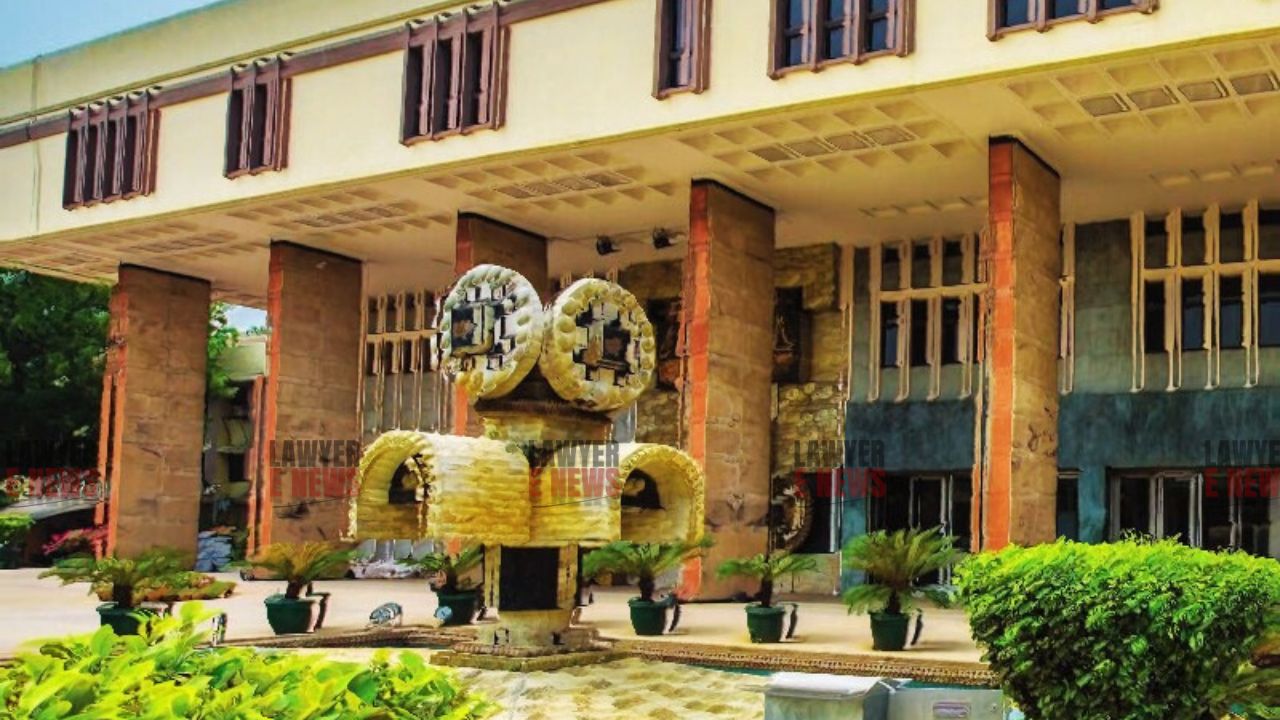-
by Admin
15 February 2026 5:35 AM



On October 23, 2024, the Delhi High Court, in a judgment delivered by Justice Yashwant Varma and Justice Ravinder Dudeja, quashed the retrospective cancellation of GST registration of Ram Niwas, proprietor of Maha Kuber Garments, citing procedural lapses and violation of principles of natural justice. The Court directed the GST department to restore the petitioner’s GST registration and provided the department with the liberty to pursue tax recovery through proper procedures.
The case arose from the retrospective cancellation of the petitioner’s GST registration due to alleged non-existence of the business at its registered address. The petitioner challenged both the Show Cause Notices (SCN) issued on February 6, 2024, and August 7, 2024, as well as the subsequent cancellation orders dated May 25, 2024, and August 27, 2024, on the grounds that they were issued without valid reasons or proper opportunity for the petitioner to be heard.
Court Criticizes Deficient Show Cause Notice
The Court found that the Show Cause Notice dated February 6, 2024, was procedurally flawed, as it failed to provide essential details such as the officer's name and the place for the hearing, thus depriving the petitioner of a fair chance to present his case. The Court highlighted that at least three personal hearing opportunities must be given in accordance with the Master Circular dated March 10, 2017, issued by the Ministry of Finance, a requirement that was not fulfilled in this instance.
"The very foundation of the proceedings i.e. the SCN dated 06.02.2024 is therefore defective. The principles of natural justice require the authorities to give the persons/entity a proper hearing before passing an order. In this case, no effective opportunity for hearing was granted to the petitioner." [Paras 7-9]
Temporary Suspension of Business Not Grounds for Cancellation
The cancellation was triggered by a visit from Anti-Evasion officers to the petitioner’s registered address, where they found the business closed. The GST registration was then canceled retroactively from September 2, 2017, on the presumption that the business was non-existent. The petitioner explained that the business had been temporarily suspended due to personal health issues and travel but was not permanently closed. The Court agreed with the petitioner, ruling that a temporary absence from the place of business did not justify concluding that the business was non-existent and did not warrant cancellation.
“The temporary suspension of business activity on account of ill health would not warrant cancellation of the taxpayer’s GST registration. The impugned order is completely silent regarding any enquiry on this aspect.” [Para 17]
Demand for Penalty Cannot Be Linked to GST Registration Status
The Court further scrutinized the rejection of the petitioner’s application for the revocation of the cancellation of GST registration. The revocation application was denied on the grounds that the petitioner had failed to pay a penalty of Rs. 24,38,232/-, as demanded in a separate Show Cause Notice issued in August 2024. However, the Court held that the penalty proceedings were independent of the registration cancellation issue and could not be used as a basis for rejecting the revocation request.
“The demand has yet not been crystallized, and moreover, the proceedings under DRC-01 are independent of the cancellation of GST registration and cannot be a ground for rejection of the revocation application.” [Para 16]
The Court emphasized that the proper officer was required to consider the reasons for the cancellation separately from any pending penalty proceedings. It ruled that the outstanding penalty demand could be pursued independently, without affecting the petitioner’s GST registration status.
GST Registration to Be Restored, Fresh Proceedings Permitted
Ultimately, the Court allowed the writ petition, quashing both the Show Cause Notices and the cancellation orders issued against the petitioner. It directed the GST authorities to restore the petitioner’s GST registration. However, the Court granted the department the freedom to initiate fresh proceedings for tax recovery or penalties, if necessary, following proper legal procedures and providing the petitioner with due notice and opportunity to contest.
"The respondents are not precluded from taking any steps for the recovery of tax or penalty or initiating fresh action or continuing other proceedings that may be permissible in accordance with law, and after affording the petitioner an opportunity to contest any such proposed action." [Para 18]
The judgment serves as a strong reminder to the GST authorities about the importance of adhering to natural justice principles and following procedural requirements before taking drastic actions such as cancelling registrations. It also clarifies that pending tax liabilities or penalties cannot be used to indefinitely suspend or cancel registrations without following the proper legal framework.
Key Takeaways:
Procedural Fairness: A valid Show Cause Notice must contain essential details like the name of the officer and the place of hearing, and authorities must provide adequate opportunities for personal hearings.
Temporary Absence: A temporary suspension of business does not equate to non-existence and is not grounds for registration cancellation.
Independent Proceedings: Penalty demands and other tax-related liabilities cannot be linked to the cancellation of registration unless adjudicated separately.
Date of Decision: October 23, 2024
Ram Niwas v. Commissioner of Central Goods and Services Tax & Anr.
